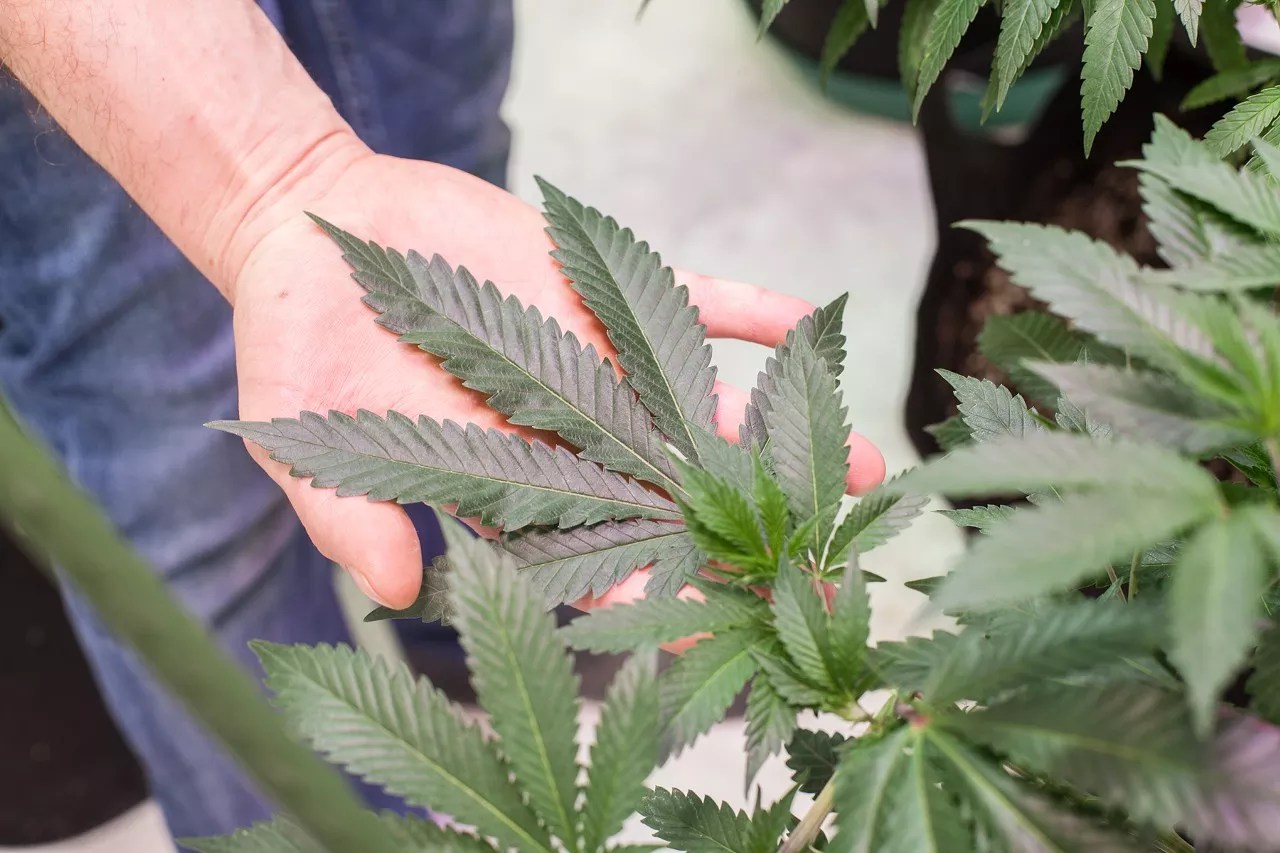
Jacqueline Collins

Audio By Carbonatix
Despite being the first state to legalize recreational marijuana, Colorado still doesn’t have a certified marijuana workers’ union. That could change, though, if a National Labor Relations Board hearing goes favorably for a group of workers at a Denver cultivation warehouse.
After a hearing scheduled for March 11, the National Labor Relations Board will decide whether workers at a Denver marijuana grow owned by TweedLeaf will be recognized for a union certification vote with the Bakery, Confectionery, Tobacco, and Grain Millers Union Local 26 chapter. If the NLRB approves the move and 75 percent of the growing operation’s employees vote in favor of certification, the TweedLeaf employees would become the first marijuana workers’ union in Colorado, after several failed attempts across the state.
In an industry operating outside of federal law, the majority of TweedLeaf grow employees don’t have health care, despite working forty hours a week or more, and have been fighting to get a steady supply of clean drinking water at work, according to BCTGM Local 26 organizer Nic Hochstedler. They went to the union with similar concerns when TweedLeaf was on the verge of purchasing their former employer, Universal Herbs, he says.
“They already had agitation with their old company, but the corporate takeover caused more fear and uncertainty,” Hochstedler explains. “There are a lot of safety issues. The shop is divided by trim and grow staff, and on the grow side, they’re working with a lot of chemicals. There’s not enough PPE, and they run out of gloves frequently.”
One TweedLeaf employee says that while the company has acted responsibly regarding COVID-19 precautions, it has mistreated workers in other ways. (The identity of the employee, who asked to remain anonymous, was verified through a state Marijuana Enforcement Division licensee search.) Trimming workers were required to stand at all times during work hours, the employee says, and could only sit if they had a doctor’s note – despite not being offered health care. Since they notified management of their unionizing efforts, trimmers have been allowed to sit, but the worker says that clean drinking water still isn’t consistently provided at work.
According to Hochstedler, 83 percent of the Denver growhouse’s workforce has signed BCTGM union certification cards, with employees notifying TweedLeaf of their intent to unionize in February.
Marijuana worker unions exist in other states with medical and recreational marijuana and have been on the rise since the COVID-19 pandemic began, but previous attempts at unionizing Colorado’s pot industry have failed. A 2016 attempt by Pueblo dispensary workers to join the United Food and Commercial Workers International Union fizzled after allegations of management bullying and union-busting tactics. In 2017, workers for growing facilities owned by the Rocky Mountain High dispensary chain voted in favor of joining the UFCW, but eventually withdrew their attempt with the NLRB in 2018.
Employees at marijuana grow operations who want to unionize face considerable obstacles; employers often argue that growhouse and trim work is agricultural labor, which, along with work in the railroad and airline industries, is exempt from federal labor protections. Colorado state law doesn’t recognize agricultural worker unions, either, though a bill now in the Colorado Senate would change that. The proposal, still in its early stages, includes protections for marijuana grow workers, but only if 50 percent of work property is used for horticulture purposes.
A company with eight dispensaries, five cultivations and two extraction facilities in Colorado, TweedLeaf maintains that cultivation employees are agricultural workers, and sides with federal labor laws regarding to their eligibility to unionize, according to CEO John Kaweske. He adds that he and his management team “have no problem with the union,” but says he finds it “disappointing that this is how they’ve started relations.”
According to the anonymous employee, grow employees aren’t given paid sick days and only receive a week of vacation time after working there for a year. Even so, when TweedLeaf took over in January, all Denver growhouse workers were put on a probation period, and their vacation days were reset to zero, the employee says.
“They said they want us to look at it as a career opportunity-type job, but we have no visibility into who our true owner even is. When I applied for the job, it was ‘health care is coming, a new owner is coming, and it’s going to be great.’ But it was just dangling carrots,” the employee adds. “If this is a legitimate enough industry to fund taxes, and we’re good enough for people to make millions of dollars off of, then we should be good enough to have basic workers’ rights. They want to classify us as farmers, but we’re not seasonal, and we’re more than that.”
Kaweske acknowledges that there were issues at the company when TweedLeaf bought the growhouse, but says they’ve either been fixed or the company is working on addressing them.
“We were certainly aware that there were things that needed to be fixed up. That’s why we buy these businesses, to fix them up,” he says. “We bring a higher level of professionalism, whether it’s dispensary acquisitions or cultivation acquisitions, like this one. Normally the businesses we buy are fixer-uppers.”
Kaweske also says that TweedLeaf pays 50 percent of health care and offers 401k plans for all full-time employees, but only after they finish a ninety-day probation period. Since TweedLeaf bought the growhouse in January, that would make the grow workers eligible for benefits in April, he says.
The NLRB is expected to come to a decision within a month, according to Hochstedler. If the NLRB doesn’t approve the TweedLeaf workers’ certification vote at the March 11 hearing, the company will not be legally obligated to recognize the union. Hochstedler says that he and his new members will continue trying to organize if that happens. However, he concedes, “It’ll make things a lot harder.”
This story was updated on March 12 to include comments from TweedLeaf CEO John Kaweske.